Gut-Brain Axis: The Complete Guide
Sep 17, 2022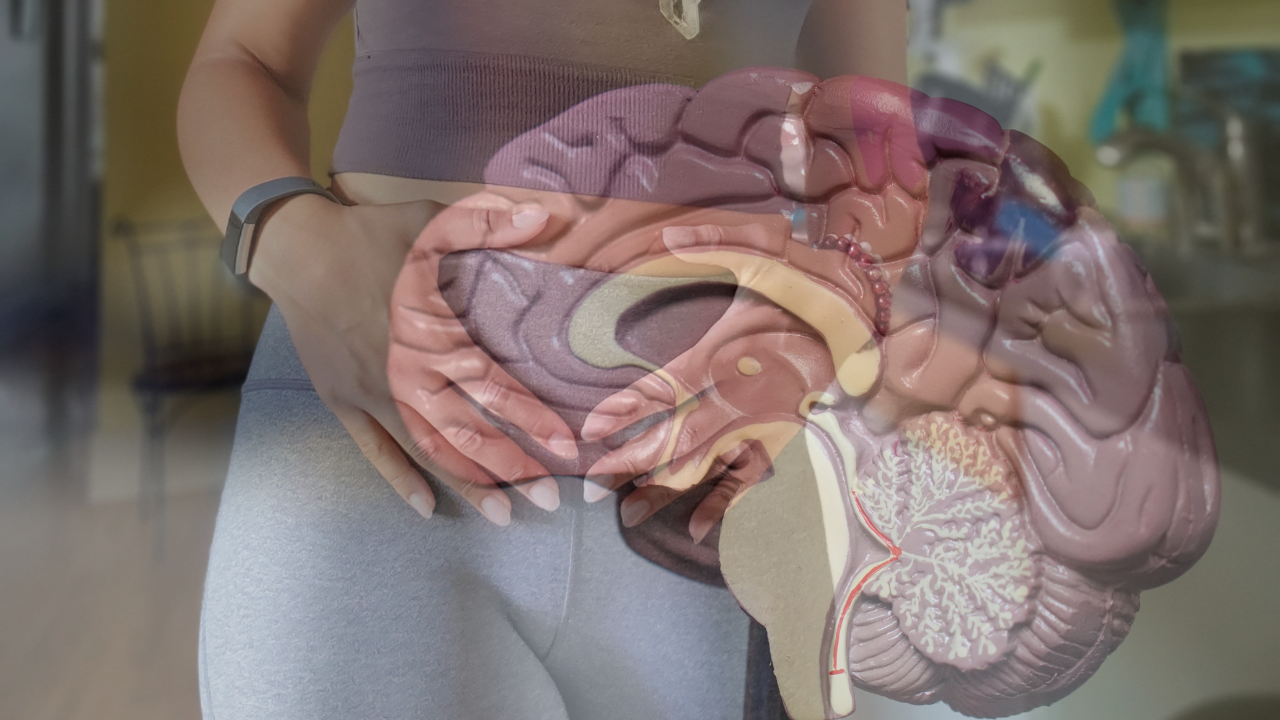
Until recently, we didn’t know how much our gut and brain interacted. Some people thought that our brains controlled everything we did, consciously and subconsciously.
They were wrong!
Some of us have a sense that there is a connection because we often feel emotions in our gut. For example, when we’re scared we can get a “knot” in our stomach. Or, feeling sad or anxious can affect our appetite and the number of bathroom trips we need to make. Plus, many digestive issues often come with mood issues.
Recent research confirms a gut-brain connection, a.k.a. “axis.” This microbiome-gut-brain axis is stronger and different than we had imagined. And with new technology, we’ve been able to study the gut microbes in a way that was not possible just a few years ago.
Let’s talk about how your gut microbes, your gut itself, your brain, and your mental health are all interconnected and influence each other! Plus, we’ll dive into some “mood foods,” as well as stress-reducing activities that can help with gut issues.
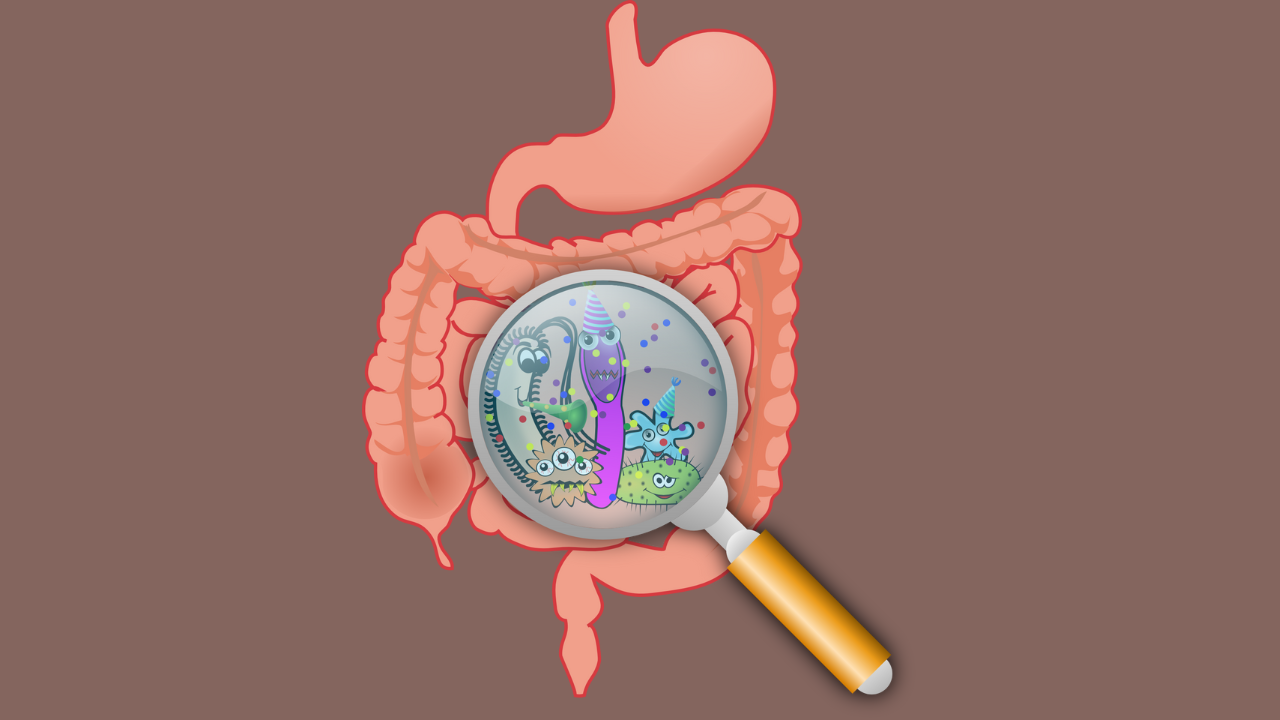
The gut and microbiome
We know that our gut (a.k.a. digestive system) plays an essential role in all aspects of health - including brain health and mental health. This is because it digests and absorbs nutrients from our food, and gets rid of waste. Without enough nutrition and all of our essential nutrients, we get deficiency diseases (that are not nearly as common now as they were just a few hundred years ago). When our gut does its job absorbing what we need, and keeping out what we don’t (and what’s harmful), it helps to nourish every single cell in our bodies.
Our gut also houses our amazing friendly microbes! The gut microbiota (i.e. collection of microbes) are mostly bacteria, but there are also yeasts and viruses there too. In fact, there are as many microbes that live in our gut as there are (non-red blood cell) human cells in our entire body! The gut microbiota is sometimes called a “superorganism!”
These microbes are friendly because they perform functions that enhance our health. They:
- Help break down certain nutrients we can’t use (e.g. fibre) and turn them into nutrients we can use (e.g. short-chain fatty acids);
- Crowd out bad microbes we ingest that can cause disease, and this reduces the risk of serious gut infections;
- Make certain essential vitamins, like vitamins B12 and K that are needed for good health; and,
- New research shows they also have a profound effect on other parts of our bodies - like our brain and mental health.
The microbiome is the collection of the genes contained within the microbiota. And technology developed in the early 2000s has allowed testing of hundreds of millions of gut microbiomes, where we used to be able to test just a few dozen. We now know that one person can have 1,000 strains with a total of over 1,000 trillion individual microbes in their gut.
FUN FACT: Researchers don’t yet know what microbes make up an “optimal” gut microbiota.
So, how does the gut and microbiome connect with the brain and mental health?
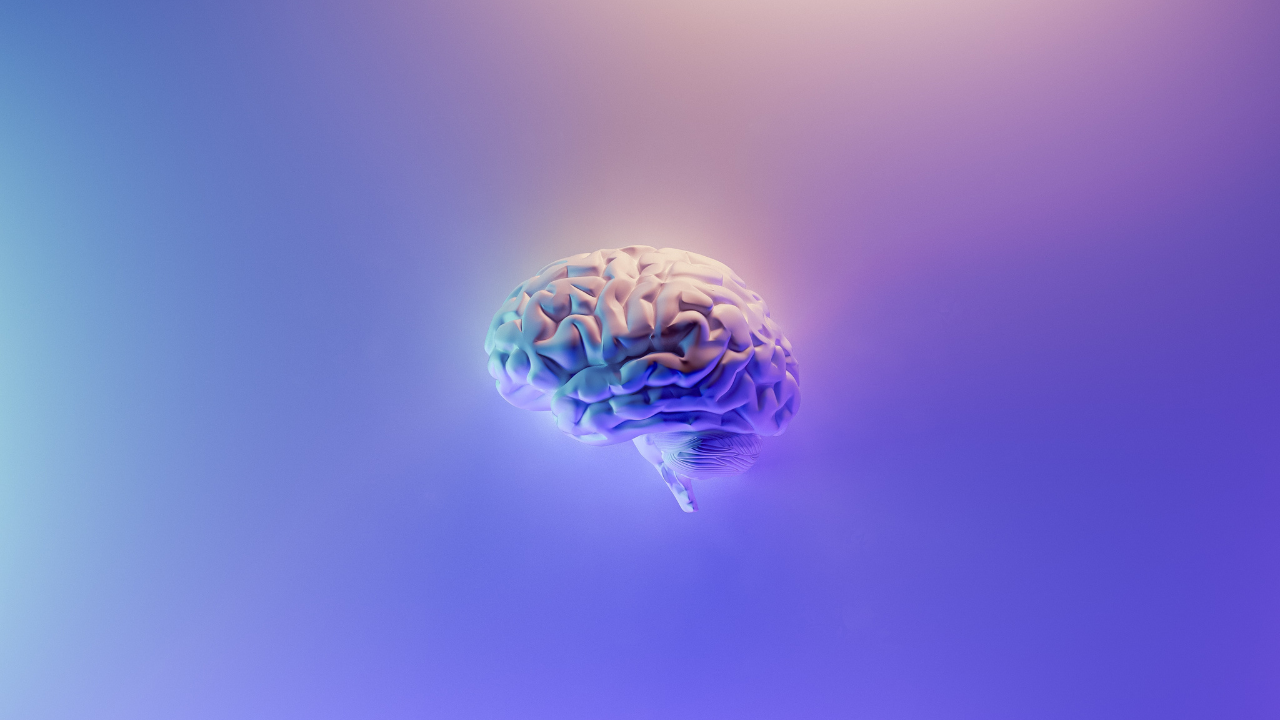
The microbiome-gut-brain axis: The observations
There are a lot of interconnections that we’ve seen over the years that point to this microbiome-gut-brain axis.
First of all, our gut’s main job is to digest and absorb nutrients from our food and get rid of waste. There are a lot of nutrient deficiency disorders which have brain and mental health connections. For example, insufficient amounts of omega-3 fatty acids and certain B-vitamins are linked with brain and mental health issues.
Second, many digestive issues seem to be associated with some mental health issues. A higher-than-normal percentage of people with certain bowel diseases develop mental health symptoms of depression and anxiety.
Another observation is through those friendly gut microbes. Lots of people report psychological side effects after taking antibiotics. Antibiotics are often necessary to treat harmful bacteria. But, they don’t only wipe out those bad bacteria, they also wipe out our friendly gut microbes too.
And what about the effect of stress on our gut? Stress can affect our appetite and even change the gut microbiome. Research shows that altered gut microbes are associated with mental health symptoms.
Also, studies are starting to show that probiotic supplements may help with stress and some mental health symptoms.
As you can see, there are a lot of ways we’ve seen our guts and brains affect each other. But, how can this be? How is it that these microbiota-gut-brain connections actually work?
The microbiome-gut-brain axis is a complex one. It involves connections between nerves, biochemicals, and the immune system itself. And that’s what we know now - this is a hotbed of research and more details are sure to surface in the near future.
Let’s look at each one separately.

The microbiome-gut-brain axis: The nerve connections
In terms of nerves themselves, there are a few ways the microbiome and gut connect with the brain.
First, your gut has a lot of nerves and is sometimes called the “second brain.” All these 200-600 million nerve cells together form their own nervous system called the “enteric nervous system.” These nerve cells control the intricate functions necessary for your digestive system to do its job - from the release of digestive enzymes and the movement of food through it, to the blood flow around it that picks up the absorbed nutrients. The gut uses its own brain to function optimally.
The second nerve connection between your gut and your brain is through the vagus nerve. This nerve physically connects our gut with our brain.
The vagus nerve is part of the nervous system that controls the body subconsciously, called the “autonomic” nervous system (it works “automatically”). This system is divided into two parts: sympathetic and parasympathetic. The sympathetic part controls our “fight or flight” reactions. The parasympathetic part, containing the vagus nerve, controls our “rest and digest” functions. Which makes sense, considering it links the digestive system to the brain.
The vagus nerve has recently been shown to send about 80% of the information from your gut up to your brain - and not from your brain down to your gut as we previously thought!
The information travelling to the brain through the vagus nerve is from the gut as well as its microbiota.
The second way the microbiome and gut link to the brain is through biochemical connections.
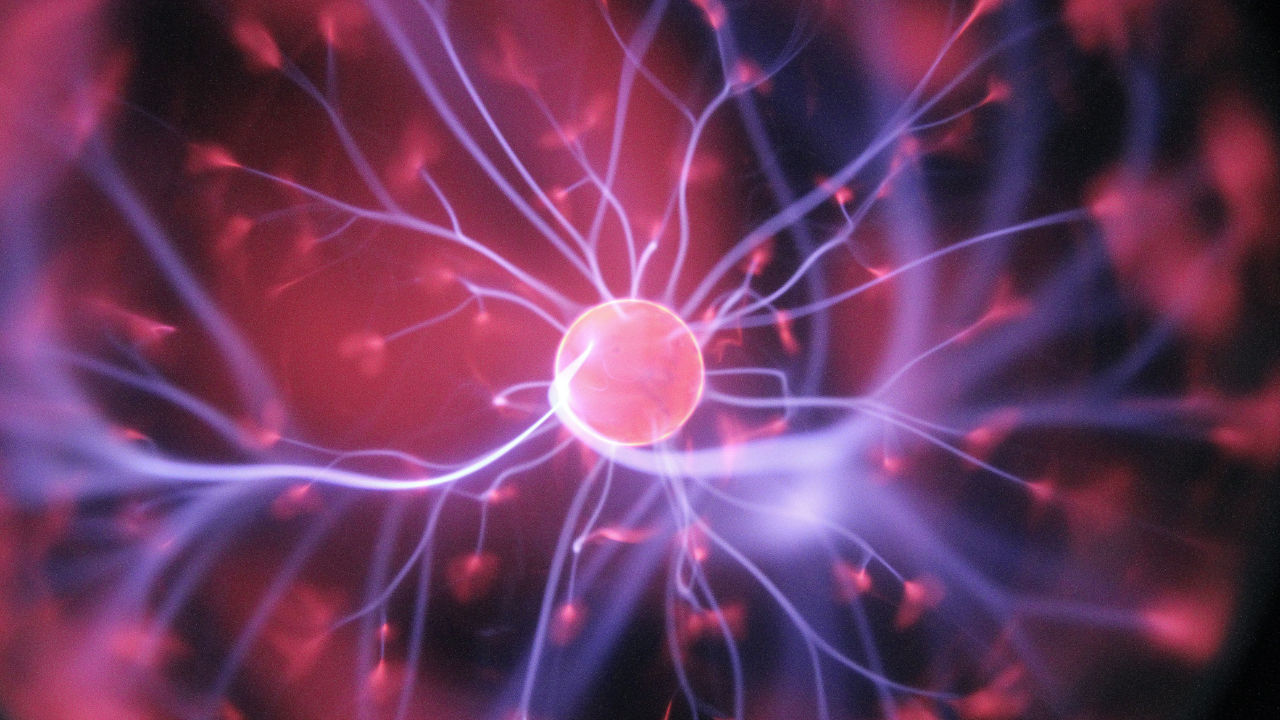
The microbiome-gut-brain axis: The biochemical connections
In addition to the physical nerves that surround our gut (enteric nervous system) and the nerve that carries info from our gut and microbiota to our brain (vagus nerve), there are biochemical connections. The first type of biochemical that sends information from our gut to our brain are neurotransmitters.
“Neurotransmitters” are just that - transmitters of information between nerve cells. They’re chemical messengers that allow nerve cells to communicate with each other. One of the most famous mood-affecting neurotransmitters, serotonin, is made in the gut. Serotonin is sometimes called the “happy” neurotransmitter because it seems to be lower in people with depression. Research shows that 90% of serotonin is in the gut, not in the brain! It plays an essential role, promoting the movement of food through the gut (peristalsis).
Another biochemical connection is between our gut microbes and our brains - through their metabolites. Our gut microbes need to eat, and in the process, they produce compounds (i.e. metabolites). These include short-chain fatty acids from dietary fibre, as well as amino acids from dietary protein. As mentioned earlier, they also create the essential vitamins B12 and K. All of these microbial compounds travel throughout our bodies and can reach and affect our brains.
The third biochemical connection between our microbiome, gut, and brain - is through stress hormones. Our HPA-Axis (Hypothalamic-Pituitary-Adrenal Axis) starts in our brains and uses hormones like cortisol to affect other parts of the body, including the gut. Research shows that stress hormones tell immune cells in the gut to secrete compounds that can cause inflammation and tiny “leaks” in the gut (permeability).
In addition to the physical nerve connections and the biochemical ones the microbiome-gut-brain axis also uses the immune system.

The microbiome-gut-brain axis: The immune and inflammatory connections
Our immune cells travel throughout our body looking for unwelcome invaders like harmful bacteria and viruses. Just like most of our neurotransmitter serotonin is located in our gut, most of our immune system is there too. This is because our mouths are a huge portal for the outside world to get into our bodies. We can easily swallow disease-causing microbes which need to be dealt with by our immune system. So, it makes a lot of sense that most of our immune system is located around our gut.
When our immune cells start working to attack invaders, they can cause inflammation.
If our immune cells become overactive, this can cause autoimmunity and excess inflammation. Autoimmunity is when our immune cells mistake our own cells as harmful ones, and then attack them. This can also affect our moods.
All three of the connections, nerve, biochemical, and immune system, are part of the complex microbiome-gut-brain axis!
There is a clear 2-way street between our gut and our brains, even though the details are still being discovered as we speak. From what we know already, let’s talk about what we can put in our gut to feed our moods, and what we can do mentally to help our gut.

Mood foods
Yes, it’s possible to affect our brain and moods with the foods we eat. In fact, this is a new area of research called “nutritional psychiatry.”
So, what do we know already?
We know that a healthy diet is linked with a lower risk of mental health issues. Several recent high-quality studies suggest that what we eat is a “modifiable risk factor” for depression and anxiety. This means that what we eat affects our risk of mental health issues, and we can control (modify) what we eat.
The essential components of a healthy diet include a lot of nutritious and fibre-dense foods. In fact, what we eat is the main thing that influences our gut microbes (remember, our microbes like to eat fibre!). Components of a healthy diet include:
- Fruits and vegetables;
- Whole grains, legumes, nuts, and seeds;
- Olive oil; other Omega-3 rich foods and oils.
Perhaps not surprisingly, foods associated with poorer mental health include processed, sugary, salty, fried, fast, and high-fat foods, as well as sugary drinks.
A recent randomized clinical study shows that what we eat can help improve symptoms of people who already experience depression!
The SMILES trial took 67 people who already had depression and ate poor quality foods. This means they ate a lot of sweets, processed meats, and salty snacks; and not very many fruits, vegetables, and dietary fibre.
They split the participants into two groups. One group was given seven nutrition counselling sessions and were asked to eat more high-quality foods and fewer poor quality foods. The other group was given “social support” only - they paired up with someone to discuss the news, sports, or even play cards or board games.
After 12-weeks the people who improved their diet had improvements in some of their symptoms of depression!
The researchers concluded that improving dietary quality is a “useful and accessible strategy for addressing depression in both the general population and in clinical settings.”(Jacka et. al, 2017)
While this was the first study of its kind and had positive results, it will be great to have additional studies to confirm and expand on these results.
In the meantime, we can improve our diets to eat more healthful nutrient-dense foods, and fewer low-quality foods to improve both our mental and physical health.
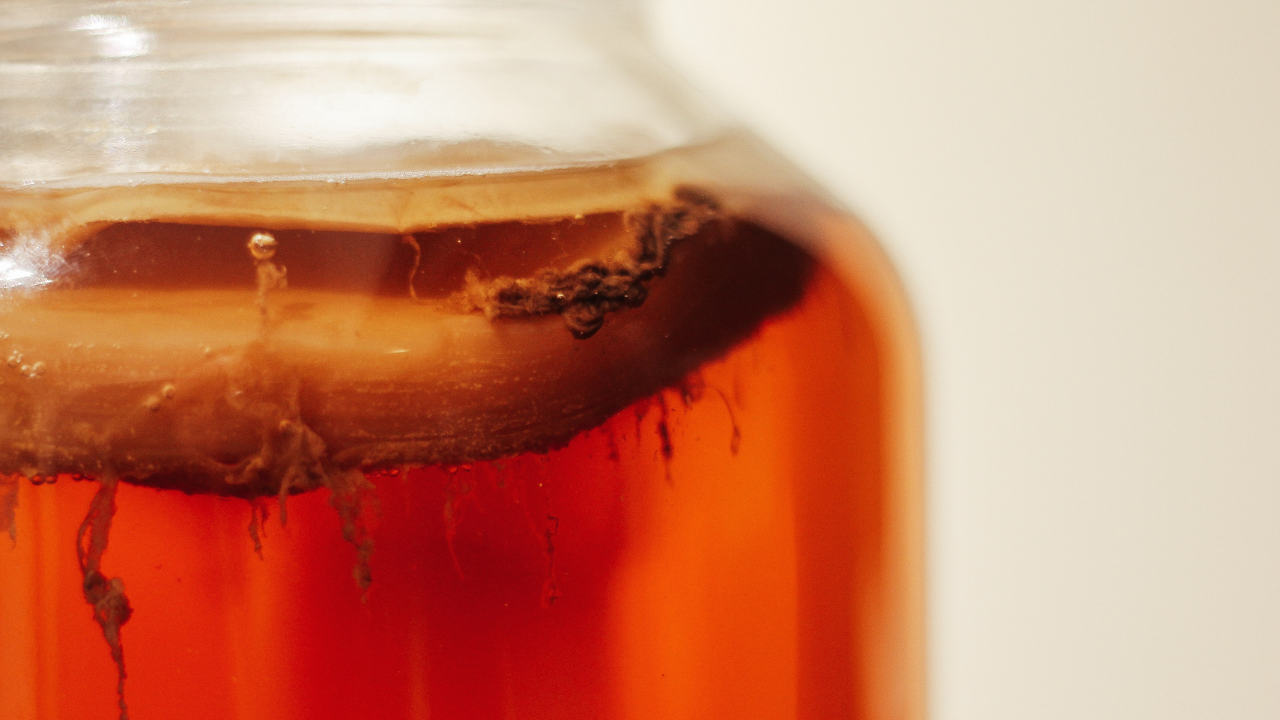
What about probiotics?
There is research specifically looking at probiotics and mental health. “Probiotics” are health-promoting microbes that we can eat, drink, or supplement with. They’re found in things like yogurt, sauerkraut, kombucha, kefir, miso, and kimchi.
There are a few studies that have looked at the mood effects of people who take probiotic supplements.
One review of 10 studies found that there are some mood benefits from probiotic supplementation.
Another review looked at seven studies that compared probiotic supplements to placebo in healthy volunteers. The researchers concluded that there was a statistically significant improvement in psychological symptoms and perceived stress in people who took the probiotics.
This research is promising, but still preliminary.
PRO TIP: If you have any health conditions, or are on medications, please check with your healthcare professional before taking any supplements. Also, everyone should read the labels before purchasing a supplement to ensure that none of the cautions or warnings apply to them, and to ensure they’re taking it as per the directions for use on the label.
Now that we’ve looked at foods to put in our gut to help our mental health, let’s look at how stress reduction can help our gut.

Reduce stress for your gut
As we’ve mentioned, gut issues can affect your stress level and moods, but it works the other way around too. If you have gut issues, then reducing your stress may help some of them.
Irritable Bowel Syndrome (IBS) and Inflammatory bowel diseases (IBD) like Crohn’s and ulcerative colitis are considered to be “biopsychosocial” diseases. This means that they’re not just physical issues, but stress plays a key role in them as well. In fact, people with IBS have higher-than-normal levels of stress, depression, and anxiety. And, people who report high levels of stress can go on to develop gut issues.
All of these can worsen gut symptoms by increasing the number and severity of flare-ups.

How does the microbiota-gut-brain axis work for these gut issues?
Stress influences many gastrointestinal functions. These include the microbiota, how well food moves through it (motility), secretion of important biochemicals, as well as how tightly the gut cells adhere to each other (permeability). Stress can also stimulate the sympathetic nervous system and the release of stress hormones, as well as inhibit the vagus nerve and contribute to inflammation. So, reducing stress is a strategy to reduce all of these negative effects and try to improve gut symptoms.
Some experts say that the most effective treatments for IBS are “mind-body” therapies. Mind-body therapies include hypnotherapy, mindfulness, and cognitive behavioural therapy. Individual counselling or participating in support groups can also help.
Gut-directed hypnotherapy, for example, induces a state of relaxation while verbally suggesting improvements and coping skills. Mindfulness teaches how to observe one’s current experience, thoughts, and feelings, and to learn to apply neutral emotional attention to them. Mindfulness can help people to notice symptoms and sensations in the gut and distinguish those from the thoughts and emotions surrounding those sensations.
A review of 12 studies found that mind-body approaches were effective in helping some IBS symptoms. These were improvements in both mental health symptoms, and quality of life for gut symptoms.
The researchers recommend more studies in this area.
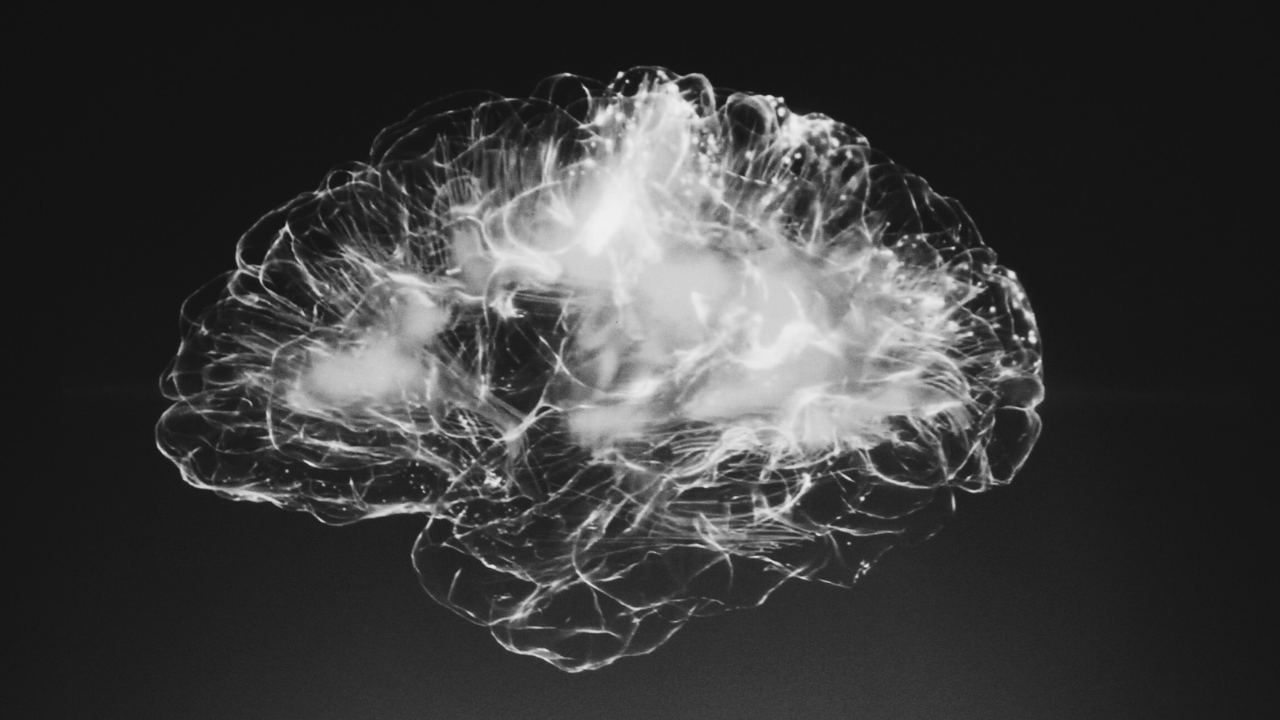
Conclusion
There is a tonne of research digging into these vast and varied interconnections between our gut and our brain. The microbiome-gut-brain axis consists of nerves, biochemicals, and the immune system. This axis is a hotbed of research to try to really understand how our “second brain” affects our moods and vice versa.
There are a number of foods that we can feed our gut that can help our moods, and reducing our stress can have a significant impact on several digestive diseases.
The microbiota-gut-brain axis is an active area of research now. Make sure you treat your gut and your brain well.

